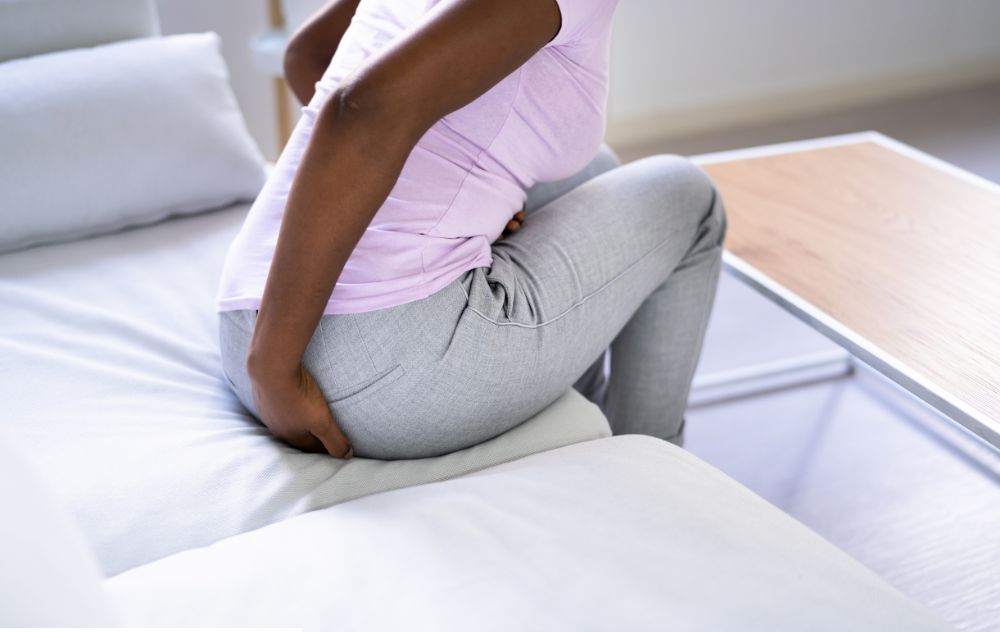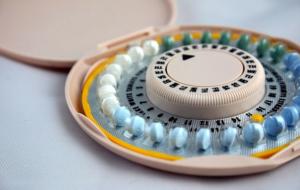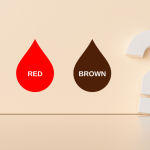
The most effective way to stop fibroid bleeding is to receive treatment. Although there are several treatment options, uterine fibroid embolization (UFE) may be the best choice. UFE is a minimally invasive, highly effective, and outpatient procedure. Unlike fibroid surgery, UFE leaves the uterus intact, meaning that future pregnancy can still occur.
Uterine Fibroid Bleeding
If you suffer from heavy-period bleeding caused by uterine fibroids, we want you to know that help is available. Although some women believe fibroid treatment must involve surgery, this is rarely true. There are non-surgical methods to stop fibroid bleeding.
At USA Fibroid Centers, we provide a minimally invasive, office-based treatment called uterine fibroid embolization (UFE). UFE shrinks your fibroids, alleviating disruptive symptoms like heavy fibroid bleeding and painful menstrual cramps.
Consult one of our leading fibroid specialists to discuss treatment options. Our experienced doctors can evaluate your fibroid symptoms and make personalized treatment recommendations.
What Happens When Fibroids Bleed
Heavy menstrual bleeding caused by fibroids can take a heavy toll on your quality of life. You might be concerned about bleeding through clothing or searching for the closest bathroom. Some women even develop anemia (a condition in which the body does not have enough healthy red blood cells) due to heavy uterine fibroid bleeding.
If you constantly worry about how to stop bleeding from fibroids, it may be time to look into treatment.
What Is Fibroid Bleeding Like?
Women with fibroids often experience heavy, lengthy periods and irregular menstrual cycles. Heavy fibroid bleeding is menstrual bleeding that lasts longer than seven days, saturating a tampon or pad in less than two hours, and blood clots larger than a quarter. Irregular periods are actually “Missed, delayed, or erratic periods or abnormal bleeding patterns.
Fibroids are not the only health condition that can cause heavy menstrual bleeding. If you are experiencing heavy or abnormal periods, talk to your doctor.
How Many Days Does Fibroid Bleeding Last?
How long does bleeding last with fibroids? Although menstrual cycles can vary, women with uterine fibroids often experience periods that last longer than seven days. Some also experience breakthrough fibroid bleeding mid-cycle.
More Questions? Talk to a Fibroid Specialist Now
Do I Need Surgery to Stop Fibroids Bleeding?
Women with fibroids rarely require surgery to stop fibroid bleeding. While hysterectomy (the complete surgical removal of the uterus) is an effective treatment to stop fibroid bleeding, it comes with inherent risks, including excessive bleeding, blood clots, infection, and adverse effects from general anesthesia.
Hysterectomy causes permanent loss of fertility and may damage surrounding organs. Recovery time takes up to eight weeks. After this procedure, you may experience changes in your bladder and bowels, vaginal bleeding, or discharge. A hysterectomy can also cause the onset of menopause if the ovaries are removed with the uterus.
Another type of fibroid surgery, myomectomy, removes the fibroids from the uterus. While the side effects are not as drastic, this procedure involves many of the same surgical risks as a hysterectomy. New fibroids can form after a myomectomy, potentially with similar heavy bleeding. A myomectomy is sometimes recommended for women who want to get pregnant and carry a baby since it leaves all reproductive organs intact. However, this procedure still carries a risk of complications during pregnancy and childbirth.
Can Birth Control Stop Fibroid Bleeding?
Birth control medication is one of the most common treatment options doctors recommend for heavy uterine fibroid bleeding. Many women prescribed oral contraceptives may notice lighter periods with less bleeding and cramping.
Intrauterine devices (IUDs) can also reduce bleeding from fibroids. Even though they are prescribed as birth control, the small amount of hormone released by the IUD can also help reduce heavy bleeding.
However, women with fibroid bleeding should keep in mind that birth control medications and IUDs can only treat the symptoms of fibroids, not the fibroids themselves. For a more effective and long-lasting solution to stop fibroid bleeding, consider UFE treatment.
Schedule a Consultation with USA Fibroid Centers
To learn more about how to stop fibroid bleeding, schedule a free consultation with one of our specialists. We have over 60 locations and accept most insurances. You can discover freedom from heavy fibroid bleeding and the impact it causes on your social, personal, and work life.
One of our experts will meet with you to discuss a personalized treatment plan. Just call us at 855-615-2555 to make an appointment to visit one of our centers.




